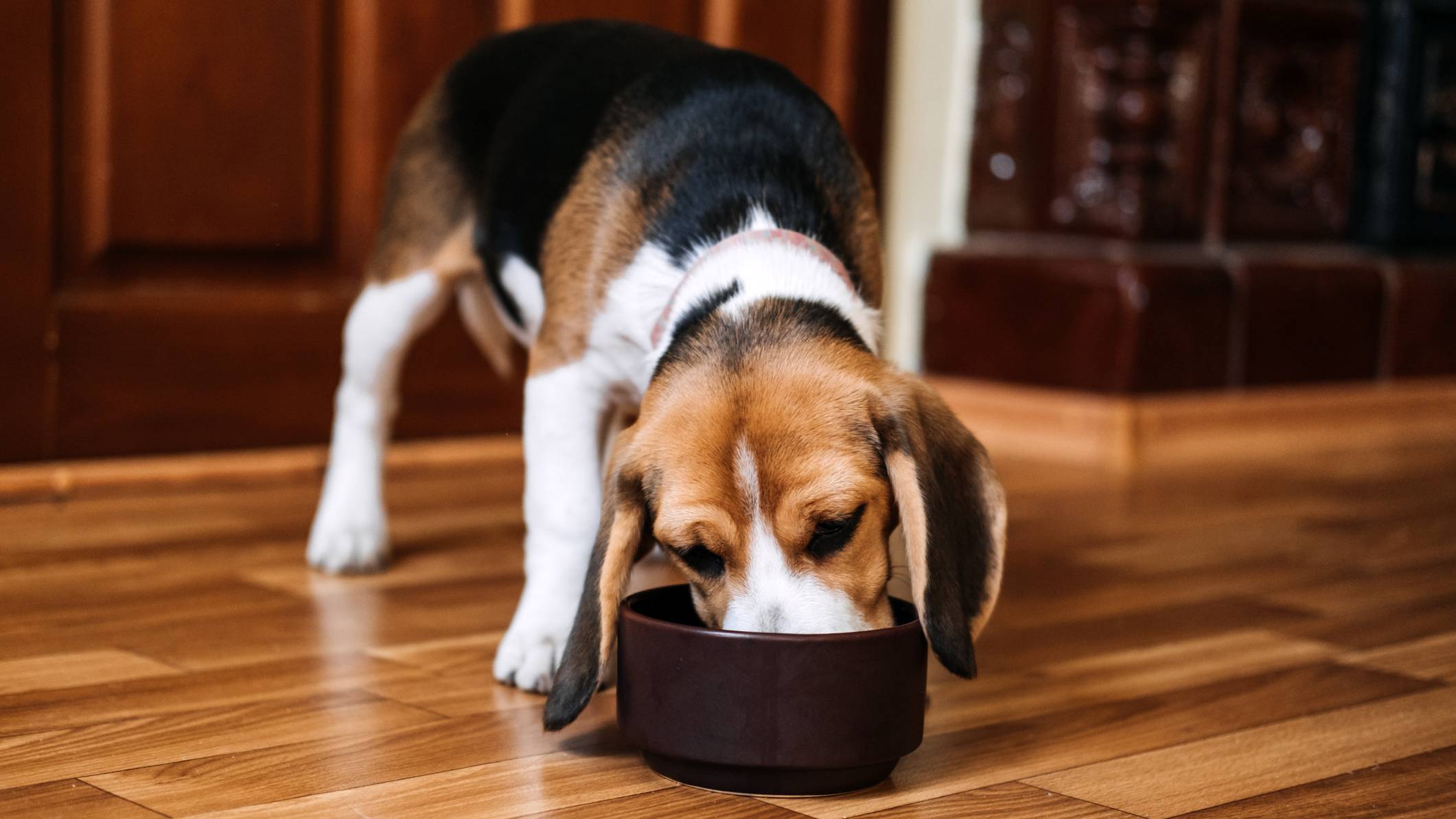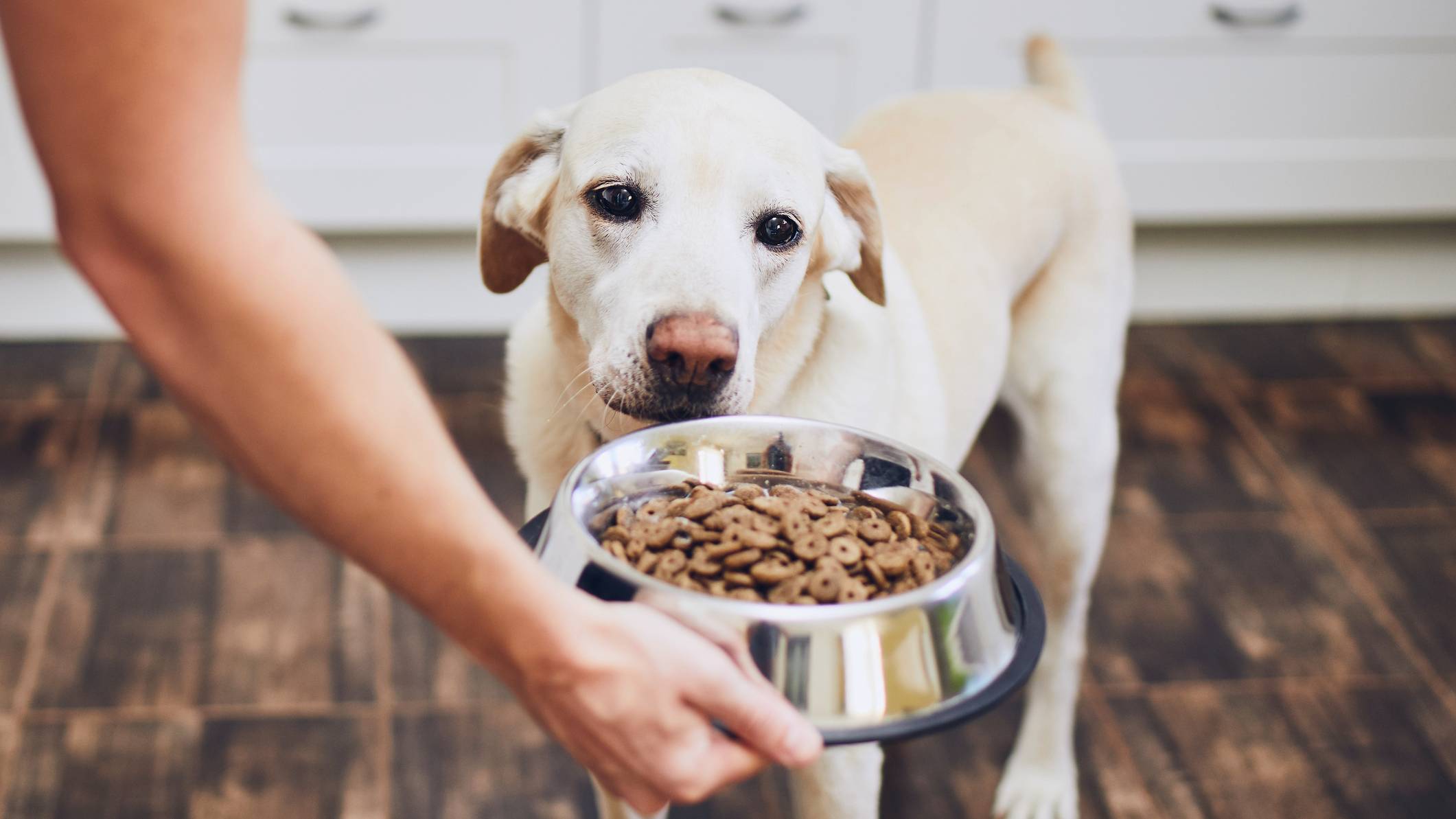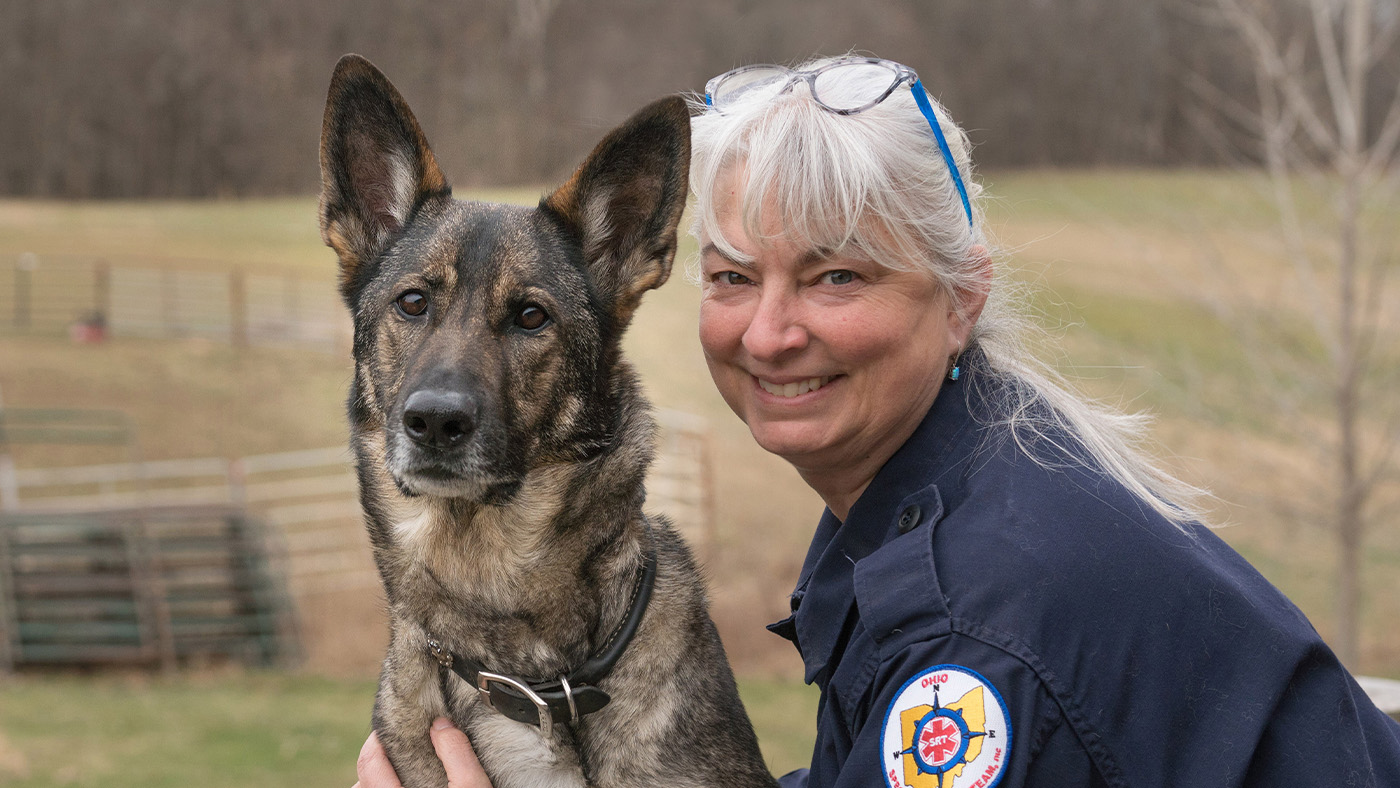Why is my dog always hungry? Vet's guide to increased appetite in dogs
Why is my dog always hungry? Our vet reveals the most common causes, symptoms, and treatment options

Why is my dog always hungry is a common question amongst pet parents, but it’s worth noting that there’s a difference between the perpetual enthusiastic interest our pups naturally show in the best dry dog food and an excessive appetite that may have an underlying medical cause.
Figuring out how to stop dogs begging for food or trying to swipe a tasty tidbit off the countertop can feel like an ongoing battle and usually, this is just part and parcel of owning a dog. But if your pup’s regular ravenous appetite seems to have increased recently, that’s something to pay attention to.
Causes of an increased appetite in dogs can include things like anxiety and stress, certain medications, metabolic disorders, gastrointestinal disorders, and parasites. Changes in eating habits may also be accompanied by other symptoms, such as vomiting or diarrhea, weight gain or loss, and drinking and urinating more often.
Any changes in your dog’s eating habits - whether increased or decreased - can indicate a medical problem, so it’s important to keep a close eye on their food intake and report these to your vet. Below, Dr. Elizabeth Racine gives her advice on why your dog may be hungrier than usual and what to do about it.

Dr. Elizabeth Racine is a small animal general practice veterinarian with a bank of knowledge on all things pet health and wellness. She is especially interested in veterinary behavior, nutrition, and internal medicine. Dr. Racine also has experience writing content for the American Kennel Club, Merck Animal Health, Bayer PetBasics, Elanco, and CareCredit.
Symptoms of an increased appetite in dogs
Dogs with an increased appetite may eat more than their usual ration, especially if allowed free access to food.
Pet owners may find that they are filling the food bowl more frequently or buying dog food more often than usual. Dogs with an increased appetite may also show more food-seeking behaviors such as counter surfing or begging at the table more frequently than usual.
Begging, in particular, may become a nuisance for pet owners and is sometimes what drives them to seek veterinary attention. Depending on the underlying cause of the increased appetite, some dogs may gain weight while others may maintain or even lose weight despite eating more than usual.
Why is my dog always hungry?
There can be several reasons why a dog may develop polyphagia, or an increase in appetite. Some possible causes of an increased appetite in dogs include:
- Inadequate nutrition
- Diabetes mellitus
- Cushing's disease
- Hyperthyroidism
- Exocrine pancreatic insufficiency
- Primary gastrointestinal disease
- Use of steroid medications
- Parasitism
- Hypoglycemia
- Sudden Acquired Retinal Degeneration (SARDs)
- Portosystemic shunt
- Liver disease
- Gastrointestinal lymphoma
- Behavioral changes
To determine the underlying cause of your dog's increased appetite, it is important to see your veterinarian for a diagnosis.
Often the increase in appetite is also accompanied by other symptoms, such as changes in drinking behavior, changes in urination and defecation habits, or changes in energy level. Make note of any other symptoms your pet may be experiencing and be sure to discuss these with your veterinarian as well.

Diagnosing increased appetite in dogs
If your dog has experienced a change in appetite, the first step is a visit to your veterinarian. Your veterinarian will start by taking a thorough history of the problem and will ask you questions about your dog's appetite and behavior, as well as any other symptoms you may have noticed.
Your veterinarian will also perform a full head to tail physical examination, and will likely recommend some additional diagnostic testing. This may include blood work, urinalysis, evaluation of a fecal sample, and diagnostic imaging such as radiographs (x-rays) or ultrasound. This testing will help your veterinarian narrow down the underlying cause of your dog's change in appetite.
Treating increased appetite in dogs
The treatment for an increased appetite will vary depending on the underlying cause of the condition. For example, some medical conditions such as Diabetes Mellitus, Cushing’s disease, and exocrine pancreatic insufficiency can be treated with medications that your dog will need to take for life.
Other causes of increased appetite, such as a portosystemic shunt, may require surgery to correct. If your dog’s increased appetite is due to taking medications such as steroids, stopping the medication, if it is safe to do so, will allow your dog’s appetite to return to normal.
Your veterinarian will help you determine the best course of treatment for your dog’s increased appetite based on the underlying cause and your dog’s health status.
How to stop a dog begging for food
What if your dog is just a food lover and his appetite is simply behavioral, rather than medical? In these cases, managing your dog’s appetite is important to prevent excessive weight gain.
Overweight and obese dogs are more prone to health conditions like arthritis, heart disease, and certain cancers, so keeping your pet at a lean body weight is essential for their health:
1. Never feed your dog from the table
To stop your dog from begging, never feed your dog from the table, especially when you are eating. Stick to portioned meals of dog food two or three times daily and try to avoid adding any “extras” like table scraps or human food.
2. Use an automatic feeder
Using an automatic feeder is a great way to discourage begging - not only is the food pre-portioned so you’re less tempted to add extra, but it also separates the food from you, so your dog is less likely to come begging to you for more!
3. Limit treats
It’s also important to limit treats to discourage begging and keep your dog at a healthy weight. Remember, treats aren’t a necessary part of your dog’s diet.
If you must give treats, limit them to no more than 10% of your dog’s daily calorie intake and give them only at specific times of day or as a reward for specific behaviors, so your dog will be less inclined to beg for them.
4. Consider using fruits and vegetables
Consider using fruits and vegetables as low calorie treats to prevent weight gain. Green beans, carrots, and blueberries are great options that will still be rewarding for your dog while minimizing his calorie intake!
Monitoring your dog’s appetite is a key factor in keeping track of his overall health and wellness. Changes in your dog’s appetite may come on gradually or occur suddenly. Any changes in your dog’s appetite should be reported to and evaluated by your veterinarian, as well as any other symptoms such as changes in drinking habits, changes in elimination habits, and changes in energy level and behavior.
Your veterinarian will help you determine the best course of diagnosis and treatment for your dog depending on the underlying cause of the appetite change. In many cases, treating the underlying cause will improve or resolve your dog’s increased appetite, allowing you both to get back to life as usual!
Enjoyed this piece and looking for more helpful canine content? Then be sure to check out our guide to the symptoms, causes and treatments for an upset stomach in dogs.
PetsRadar Newsletter
Get the best advice, tips and top tech for your beloved Pets
Dr. Elizabeth Racine is a small animal general practice vet covering all things pet health and wellness. Her special interests include veterinary behavior, nutrition, and internal medicine.
As a freelance writer, Dr. Racine has written content for major companies in the industry such as the American Kennel Club, Merck Animal Health, Bayer PetBasics, Elanco, and CareCredit. In her free time, Dr. Racine enjoys playing trampoline dodgeball, hiking with her beagle Dasher, and spending time with her three mischievous cats.
